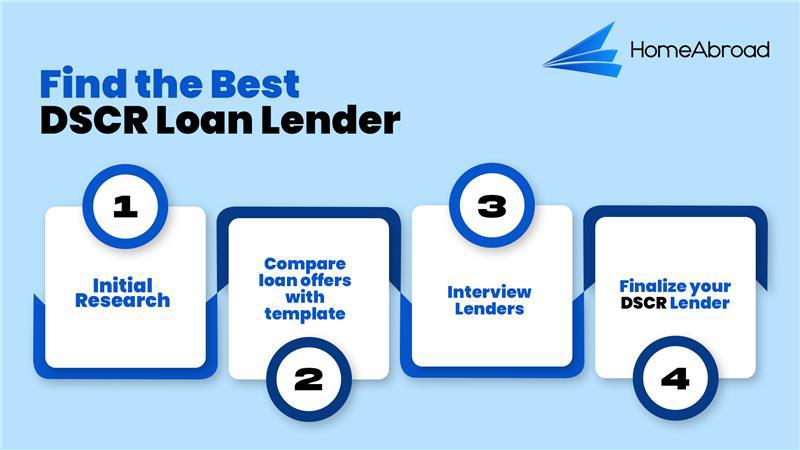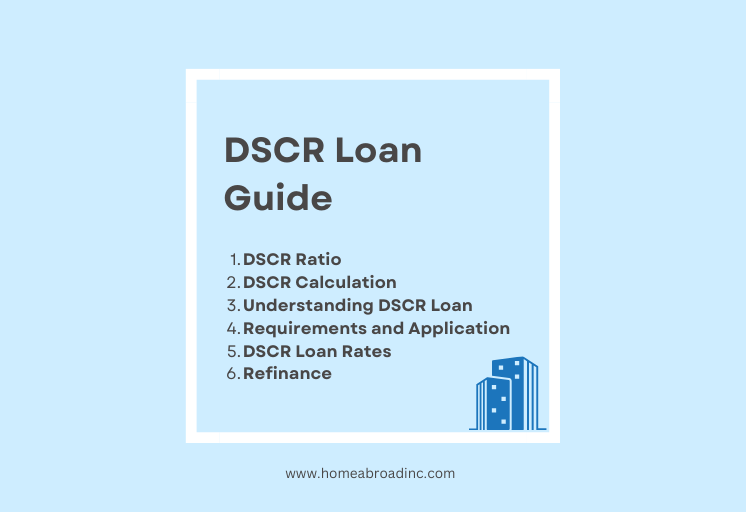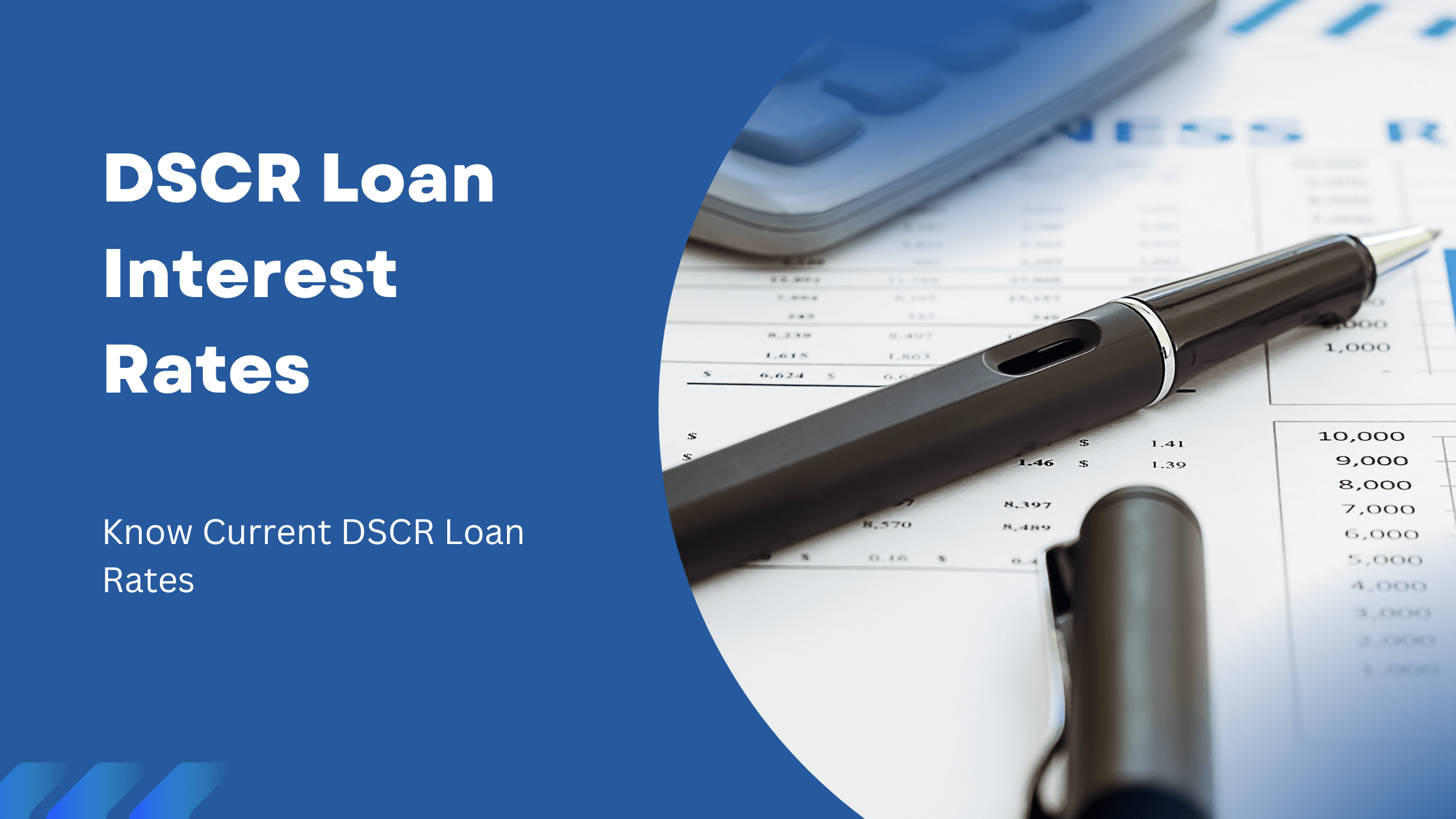

Summary:
DSCR loans operate beyond standard government regulations, resulting in each DSCR lender offering unique terms. Therefore, carefully shopping for the best terms is essential to maximize your investment returns.
Finding the perfect investment property is only half the battle; the other half is securing a DSCR loan with terms that don’t eat into your profits. A DSCR loan, designed for investment properties, evaluates the property’s ability to generate sufficient cash flow for covering mortgage payments.
When seeking a Debt Service Coverage Ratio (DSCR) loan, it’s crucial to know that private lenders and commercial banks offer these loans, and they each have unique terms, which can significantly impact your financial outcome.
For instance, while one lender may be more favorable for long-term rental properties, another could offer superior terms for short-term rental properties, i.e., Airbnb. These variations in terms extend beyond the property type, influencing not just your payments but the overall profitability of your investment. Choosing the first lender you encounter could result in missed opportunities for better terms. It’s important to take your time and consider all options.
This article aims to guide you on how to find and compare DSCR loan lenders so that you can secure the best possible loan terms to maximize your investment returns.
Table of Contents
Who offers DSCR loans?
DSCR loans are typically provided by private lending institutions, offering diverse terms tailored to various investment strategies.
Why is it important to choose the right DSCR loan lender?
The implications of choosing a lender for a DSCR loan extend far beyond simple loan approval. Opting for the right lender is crucial because DSCR loans are categorized as Non-Qualified Mortgage (Non-QM) loans. This means they operate beyond the scope of traditional government regulations.
The absence of standard loan terms, as seen with Government-Sponsored Enterprises like Fannie Mae and Freddie Mac, results in substantial variability in terms and conditions among different DSCR lenders. This variance can lead to different outcomes, including:
One lender might approve a loan that another declines due to their specific criteria and requirements.
Therefore, the choice of a lender influences much more than just the initial loan approval.
Selecting the wrong lender could mean:
- Agreeing to terms that are not financially optimal.
- Potentially diminishing the profitability of your investment.
- Higher interest rates or less favorable loan terms erode your returns over time.
Therefore, while obtaining loan approval is important, securing the best possible deal requires meticulous comparison shopping. This process is more challenging with DSCR loans than with conventional mortgages due to the smaller number of lenders in this space.
To effectively embark on this journey:
- Begin by identifying lenders that specialize in DSCR loans.
- Remember, understanding and navigating the variety of loan terms and conditions is key to making a decision that positively impacts your investment’s profitability.
In the next section, we will provide detailed steps to critically evaluate potential lenders, ensuring your decision aligns with your long-term investment goals.
For those who prefer to bypass this complex process, HomeAbroad offers an ideal solution. We have an extensive network of DSCR loan lenders, and we carefully match you with the lender that best fits your investment scenario.

Compare Rates from Best DSCR Lenders
Get pre-qualified for Investor Cash Flow Mortgage based on potential rental income
How to choose the best DSCR loan lender for your investment goals?
To assist you in selecting the most suitable lender for your specific needs, we’ve outlined a series of detailed steps, complemented by a mortgage comparison template. This resource is designed to facilitate an in-depth analysis, helping you pinpoint the ideal lender for your unique situation.

Step 1: Conduct Initial Research
To begin, it’s a good idea to start by contacting lenders you’ve worked with previously. They may be able to offer you better terms if you’re a returning customer.
If you’re unfamiliar with DSCR loans or your regular lenders don’t provide them, It might be a good idea to work with a mortgage broker who can help compare rate quotes from multiple DSCR loan lenders. Once you’ve found some potential lenders, reach out to them and request loan quotes. These quotes will be essential for understanding the DSCR loan requirements of different lenders and performing comparative analysis.
Step 2: Compare Loan Offers
To systematically compare the loan offers you’ve received, employ our mortgage comparison template. This template is designed to help you evaluate the key aspects of each mortgage offer.
Download DSCR Loan Comparison Template
| Category | Subcategory | Mortgage 1 | Mortgage 2 | Mortgage 3 | Mortgage 4 | Notes |
| Basic Loan Information | ||||||
| Type of Mortgage (Fixed, ARM, etc.) | ||||||
| Loan Term (Years) | ||||||
| Interest Rate | ||||||
| Annual Percentage Rate (APR) | ||||||
| Loan-to-Value Ratio (LTV) | ||||||
| Monthly Mortgage Payment | ||||||
| DSCR Specifics | ||||||
| Minimum DSCR Ratio Required | ||||||
| Credit Score Requirement | ||||||
| Minimum Down Payment Required | ||||||
| Cash Reserves Requirement | ||||||
| Investment Experience Requirement | ||||||
| Property Income Assessment Method | ||||||
| Fees | ||||||
| Origination/Underwriting Fee | ||||||
| Appraisal Fee | ||||||
| Document Preparation and Recording Fees | ||||||
| Credit Report Fee | ||||||
| Other Fees | ||||||
| ARM (If applicable) | ||||||
| Rate Adjustment Frequency | ||||||
| Rate Cap Details | ||||||
| Index for Rate Adjustment | ||||||
| Flexibility and Terms Adjustment | ||||||
| Terms Negotiation Possibilities | ||||||
| Prepayment Penalties | ||||||
| Lock-in Agreement Terms | ||||||
| Allowance of Extra Principal Payments | ||||||
| Customer Service Assessment | ||||||
| Responsiveness and Clarity | ||||||
| Ongoing Support and Assistance | ||||||
| Digital Accessibility | ||||||
| Online Application Process | ||||||
| Digital Account Management | ||||||
| Additional Considerations | ||||||
Before diving into the comparison, let’s understand what each field in the template represents and what to ideally look for.
Basic Loan Information:
- Type of Mortgage: There are two types of mortgages: fixed-rate and adjustable-rate (ARM). Fixed-rate mortgages offer consistent payments, while ARMs may have lower initial payments, but the interest rate and payments may increase when the rate resets. ARMs are suitable if you plan to own the property for a certain period of time.
- Loan Term: The duration of the loan. Shorter terms generally mean higher payments but less interest over time. Choose based on your cash flow and investment horizon.
- Interest Rate: The rate at which you will repay the loan, directly affecting monthly payments.
- Annual Percentage Rate (APR): Reflects the yearly cost of the loan, including fees, providing a more comprehensive view of the loan’s expense. A lower APR indicates lower overall borrowing costs.
- Loan-to-Value Ratio (LTV): Represents the loan amount compared to the property’s value. Lower LTV often leads to better terms.
- Monthly Mortgage Payment: The amount you will need to pay each month. Ensure the payment is affordable and aligns with your investment’s cash flow.
DSCR Specifics:
- Minimum DSCR Ratio Required: Indicates the property’s income generation ability relative to loan payments and other property expenses. Look for a lender with a reasonable minimum DSCR requirement that aligns with your property’s cash flow. You can use this DSCR calculator to find your ratio and check your eligibility.
- Credit Score Requirement: The minimum credit score needed, affecting terms and rates.
- Minimum Down Payment: The upfront payment required. Lower down payments can be helpful for liquidity, but larger down payments might reduce your interest rates.
- Cash Reserves Requirement: Some lenders require a certain level of cash reserves. Be aware of the cash reserve requirements and ensure they align with your financial situation and goals.
- Investment Experience Requirement: Some lenders might require you to have experience in managing real estate investments to offer better terms.
- Property Income Assessment Method: Depends on How the lender assesses the property’s income. You should be able to provide the required proof and follow the lender’s process.
Fees:
- Origination/Underwriting Fee: The cost of processing the loan application. Lower fees are preferable. Compare and negotiate these fees where possible.
- Appraisal Fee: For property valuation.
- Document Preparation and Recording Fees: Legal and administrative costs.
- Credit Report Fee: For getting your credit history.
- Other Fees: Any additional costs. Be wary of lenders with excessive additional fees.
Adjustable-Rate Mortgage Specifics (If applicable):
- Rate Adjustment Frequency: How often does the rate change?
- Rate Cap Details: Limits on how much the rate can increase. Lower frequency and reasonable caps are ideal to protect against sudden significant increases in payments.
- Index for Rate Adjustment: The benchmark for rate changes.
Flexibility and Terms Adjustments:
- Terms Negotiation Possibilities: The lender’s openness to modify terms. Greater flexibility can be a significant advantage.
- Prepayment Penalties: Costs for paying off the loan early. Avoid or minimize prepayment penalties where possible, as they can limit flexibility.
- Rate Lock-in Agreement Terms: This refers to the agreement with the lender to fix the interest rate for a certain period, protecting you from rate increases while your loan is being processed. Ideal terms would be a longer rate lock-in period with a lower or no fee, especially in an environment where rates are expected to rise.
- Allowance of Extra Principal Payments: This is about the flexibility to make additional payments towards the principal balance of your loan, which can help you pay off your loan faster and save on interest. The best scenario is a lender that allows extra payments without any penalties or restrictions.
Customer Service Assessment:
- Responsiveness and Clarity: The lender’s timeliness and clarity in communication.
- Ongoing Support and Assistance: The level of support provided throughout the loan term. A lender who is responsive and clear in communication is preferable. Good customer service can significantly smooth the lending process.
Digital Accessibility:
- Online Application Process: The ease and efficiency of the application process.
- Digital Account Management Tools: Tools for managing your loan online. Look for lenders offering user-friendly online platforms, as they can simplify the management of your loan.
After carefully evaluating each field in the template, you’ll have a comprehensive understanding of the differences between the loan offers, enabling you to make an informed decision.
Step 3: Request Interviews with Lenders
Select the lenders that best meet your criteria based on the template comparison, and schedule interviews with these lenders to discuss loan specifics and clarify any uncertainties.
Here are some questions you ask lenders:
1. DSCR Calculation and Flexibility:
- How do you calculate the DSCR?
- Is there flexibility in the DSCR requirements based on other factors like cash reserves or investment experience?
2. Loan Product Specifics:
- Can you provide more details about the specific loan products you offer for investment properties?
- For adjustable-rate mortgages, what index are they tied to, and how often do the rates adjust?
3. Credit Score Impact:
- Beyond the minimum requirement, how does a higher or lower credit score affect the loan terms and rates?
4. Equity and Down Payment Programs:
- Are there any special programs or conditions for experienced investors, particularly regarding down payment requirements?
5. Understanding Fees in Depth:
- Could you explain the specifics of certain fees listed in the quote, such as the origination or underwriting fees?
- Are there any potential future costs or hidden fees not outlined in the initial quote?
6. Cash Reserves:
- Are Cash reserves required, and if yes, for how many months? How do you verify cash reserves, and what assets are considered acceptable?
7. Prepayment and Extra Payments:
- Could you elaborate on the prepayment penalty terms, if any?
- Are there specific conditions or fees for making extra payments toward the principal?
8. Lock-in Rate Details:
- Can you explain the specifics of the rate lock-in option, if available?
- How long does the rate lock-in last, and what happens if rates change significantly during this period?
9. Loan Processing Insights:
- What challenges or delays commonly occur during loan processing, and how can they be mitigated?
- What are the exact documents required?
- How long is it going to take to process the loan?
10. Investment Experience Evaluation:
- How do you evaluate real estate investment experience, and how does it impact the loan terms or approval process?
Step 4: Finalize Your DSCR Lender
After completing your interviews and gathering all necessary information, it’s time to make your final decision. This step involves synthesizing the data from your research, comparison template, and interviews to select the lender that best meets your needs.
- Review Your Comparison Template: Revisit the filled-out mortgage comparison template. It contains critical data about each lender’s terms, fees, services, and other important factors.
- Evaluate Interview Insights: Reflect on the interviews. Consider the responsiveness, clarity, and helpfulness of each lender. This is also the time to factor in any additional information or impressions you gathered during these conversations.
- Assess Overall Fit: Beyond just the numbers, think about which lender felt like the best fit for your investment strategy and personal preferences. Trust and comfort with a lender are important, especially for a long-term investment.
- Make an Informed Decision: Weigh all the information, including loan terms, costs, customer service, and your personal interactions with the lenders. Choose the one that offers the best combination of favorable terms, reliability, and service quality.
- Proceed with Documentation: Once you’ve made your choice, notify the selected lender and begin the process of completing any necessary documentation to finalize the loan.
By following these steps meticulously and using the tools provided, you’ll be well-equipped to select the most suitable DSCR loan lender for your investment. This structured approach ensures that your decision is based on a comprehensive evaluation of all critical factors.
If you prefer a more hassle-free approach, HomeAbroad is here to assist. HomeAbroad offers an extensive network of DSCR loan lenders, carefully matched to offer you the most favorable terms for your specific investment scenario.
Our dedicated team of finance professionals meticulously reviews your financial profile, ensuring we connect you with a lender whose terms are most advantageous for your specific needs.

Connect with a DSCR Loan Lender
Submit your details to get a quote!
Sam’s Success Story:
I was buying a single-family home for rental in Bay Area, San Francisco, and having a problem finding a DSCR loan lender. That’s when I came across HomeAbroad. They not only had an extensive network of DSCR lenders but also understood the importance of matching a lender to an investor’s specific needs. The terms were favorable, and the rates were competitive. Thanks to HomeAbroad!
Sam Reeds – San Francisco
How to find a DSCR loan lender near you?
With our extensive network across the United States, we connect you with lender partners in your area who specialize in DSCR loans. Our commitment is to match you with a lender that offers the most favorable terms, tailored to your unique investment needs and understanding the specifics of your local market.
By leveraging our expertise and comprehensive network, you’re just a step away from finding a DSCR loan lender nearby who can provide the competitive terms and knowledgeable service crucial for your real estate investment success.

Connect with a DSCR Loan Lender
Submit your details to get a quote!
FAQs
How much can I borrow with a DSCR loan?
The borrowing range for DSCR loans typically varies from a minimum of $100,000 to a maximum of $5 million. However, this can depend on the lender and the specifics of your investment property.
What are the current DSCR loan interest rates?
Interest rates for DSCR loans are generally about 1-2% higher than those for conventional mortgages. We keep our DSCR loan interest rates page regularly updated, so be sure to check there for the latest figures.
What are the fees associated with a DSCR loan?
Fees for DSCR loans differ based on the lender. Common fees may include origination fees, application fees, and closing costs. It’s crucial to factor in these fees when comparing loan offers to understand the total cost of the loan.
Where is the best place to get a DSCR loan?
The optimal source for a DSCR loan is highly individualized. The best lender for one investor may not be ideal for another. At HomeAbroad, we specialize in connecting you with lenders from our network that best fit your unique financial and investment profile.
Do banks give DSCR loans?
Yes, many commercial banks and private lenders offer DSCR loans, though not universally. It’s important to research and compare available lenders. HomeAbroad’s extensive network of DSCR lenders can provide competitive options tailored to your needs.
What are the DSCR loan down payment requirements?
Typically, DSCR loan lenders require a down payment in the range of 20-25%, although this can vary depending on the lender’s policies, the DSCR ratio, and your credit score. It’s important to clarify this with potential lenders during the comparison process.








